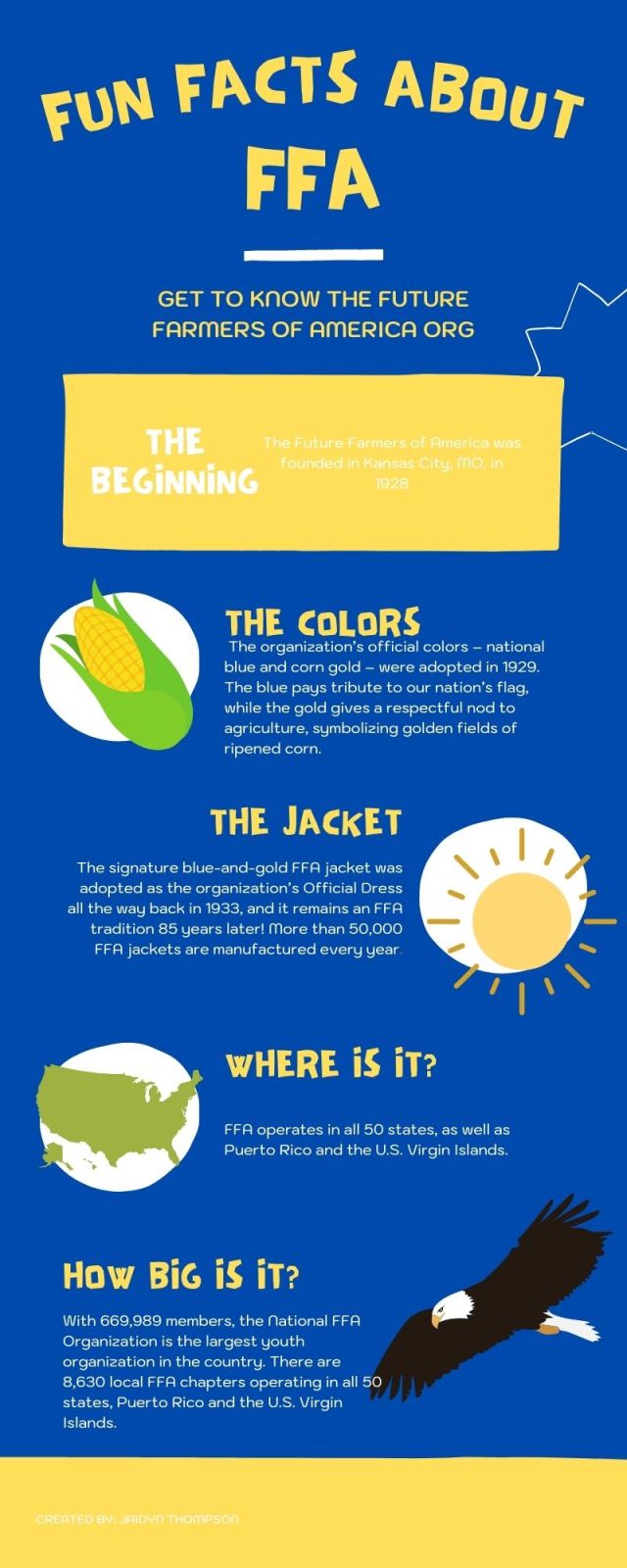COVID vs. Small Town Ag
As the COVID-19 pandemic started to take over the world in late 2019, it began to affect many aspects of everyday life. Small town Texas agriculture programs were no exception.
Across the state, agriculture programs in schools are a favorite amongst students ranging from elementary to high school. Students in these ag programs are able to raise and show livestock, learn about plants and welding, as well as participate in a variety of different competitions.

In the ag shop, Daingerfield ag students can learn the basics of welding. They often create grills, fences, and trailers. Photo credit: Jaidyn Thompson 
Outside of the ag building, students are able to utilize the green house and learn the basics of gardening. Above, high school students are tending to their own plants. Photo credit: Jaidyn Thompson 
In the back of the shop lies the various trailers many students use to haul their own animals around to different shows in. Photo credit: Jaidyn Thompson 
Pictured above is the Daingerfield High School ag building. It holds two classrooms and a mechanic shop for students to use and learn in. Photo credit: Jaidyn Thompson
Daingerfield, Texas is one small town with a big heart for their schools ag program. Eighth grade student, Ashby Croswell, has been involved in her school’s agriculture program, raising animals since the age of 8.
“One great thing about ag is that you get to learn responsibility and take care of things besides yourself,” Ashby says. “What’s awesome about raising animals is that I not only get to enjoy it, but I also get to raise money for my college fund.”
One huge draw for students participating in local agriculture programs is the opportunity for raising money. Many students have come to use this as a means to raise money for their future college endeavors.
For the past two years, Ashby has raised goats. In her case, she would be able to take these goats to various shows in Texas, which would allow her to not only raise money from buyers, but also make her eligible for different scholarships.

Pictured above are Ashby Croswell’s two goats. Photo credit: Jaidyn Thompson 
Ashby’s oldest goat, Ferdinand has been able to go to competitions prior to COVID-19. Photo credit: Jaidyn Thompson 
Ashby’s youngest goat, Junebug, is the daughter of Ferdinand. She has not been able to compete yet. Photo credit: Jaidyn Thompson 
Ferdinand and Junebug await their supper. Photo credit: Jaidyn Thompson 
Ferdinand and Junebug stay in this metal shelter in Ashby’s backyard. Photo credit: Jaidyn Thompson 
Ashby has learned a great deal of responsibility by feeding her goats before and after school. Photo credit: Jaidyn Thompson
With COVID-19 restrictions, jackpot shows and county fairs were canceled, and students were not able to showcase their animals. Ashby recalls that COVID-19’s biggest effect was on her county show.
“The county show got affected because very few people wanted to be involved and around other people,” Ashby says. “Buyers that we normally have at the show also didn’t show up which is a big bummer when you’re trying to make back the money you’ve spent on your animal and have a lot of kids wanting to make money for school.”

COVID-19 also affected what happens inside the classroom, too. These ag programs go hand-in-hand with FFA. The Future Farmers of America organization is where many students enjoy learning, competing, and experiencing all aspects of the agriculture business in the U.S. Some of the things students can get hands on learning in within the FFA include meat grading, entomology, horticulture, and farm business management.

Just 45 minutes down the road, the small town of Queen City, Texas suffered just the same. Agriculture science teacher and FFA advisor, Sabryn Stephens, says that she saw COVID-19’s impact greatly in FFA.
“I would say COVID definitely had an impact on my students involved in FFA. They were no longer allowed to compete in contests they had spent months or years training for, and they were no longer allowed to attend training and leadership camps like they were used to.” Stephens explains.

The FFA organization gives students not only big scholarship opportunities, but the resources to gain important knowledge on the agriculture industry as a whole. For Queen City agriculture science teacher, Kristin Robinson, the COVID-19 pandemic has been somewhat of a two-edged sword.
Though COVID-19 has made a hit at these small-town agriculture programs, things are starting to look up again. The Spring and Summer is when jackpot shows, county shows, as well as county and state fairs are in full swing, and they are expected to open up at full capacity this year. Students like Ashby will be able to get back to doing what they love and prepare for their futures while doing it. FFA competitions and conventions are also expected to make a big step back towards normalcy this year as they open their doors for full capacity.
With students back in the classroom, each of them are excited to get back to doing what they love. Kristin Robinson explains, “Last year COVID took away so many opportunities for myself and my students, but thankfully this year we are seeing a bit more normalcy in the industry with our events coming back in place while taking the proper steps and precautions to keep all of our members and their animals socially distanced and safe.”